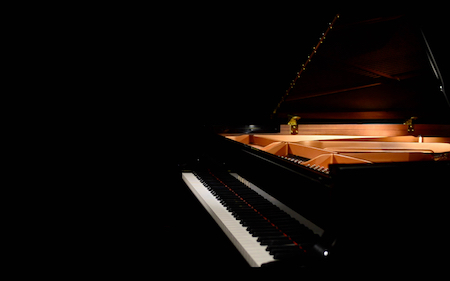Ready to bring a new piano into your home? Luckily, you have many sizes and styles to choose from. Choosing the right piano for your space is like finding the perfect musical companion. Whether you’re a seasoned pianist or just starting your musical journey, these 12 steps will guide you through the process of selecting the ideal piano that fits not only your musical preferences but also the dimensions and vibe of your living space.
Step 1: Assess Your Space
Your piano isn’t a purchase you’ll tuck away into a drawer or closet. Instead, it’ll be on full display for years to come. Take a good look at the room where your new musical instrument will reside. Measure the dimensions, consider the lighting, and think about the overall aesthetic. This will help you determine whether a grand piano, upright piano, or digital piano is the best fit for your space.
Step 2: Define Your Budget
What’s your budget? Pianos come in a wide range of prices, so it’s crucial to establish a budget early on. Whether you’re eyeing a brand-new grand piano or a quality used upright, having a clear budget will narrow down your options and make the decision-making process more manageable.
Step 3: Decide on Acoustic or Digital
Want traditional? Need portable? Consider the benefits of both acoustic and digital pianos. Acoustic pianos offer the timeless touch and feel of a classical piano, while digital pianos often come with a variety of sounds and the convenience of headphone use. Select a portable piano if that suits your lifestyle. Choose based on your musical preferences, lifestyle, and budget.
Step 4: Test Play Different Models
Visit a reputable piano dealer and spend some time playing various models. Pay attention to each piano’s touch, tone, and overall feel. This hands-on experience is invaluable in helping you find the instrument that resonates with you.
Step 5: Research Brands and Models
Pianos are not the same. Do your homework on different piano brands and models. Read reviews, ask for recommendations, and gather as much information as possible to make an informed decision. A reputable dealer will be happy to provide insights and guidance.
Step 6: Consider the Room Acoustics
The acoustics of your room can significantly impact the sound of your piano. If your space has hardwood floors and minimal furniture, you may need to consider acoustic treatments to enhance the sound quality.
Step 7: Explore Financing Options
Purchasing a piano is an investment, and many dealers offer financing options. Explore these possibilities to make the purchase more manageable and affordable.
Step 8: Check for Warranty and Maintenance Plans
Ensure that the piano you choose comes with a solid warranty and consider purchasing a maintenance plan. Regular tuning and maintenance are essential for the longevity and optimal performance of your instrument.
Step 9: Factor in Resale Value
If you’re considering a used piano, think about its resale value. A reputable dealer will provide information on the instrument’s history and condition, helping you make a wise investment.
Step 10: Trust Your Instincts
When it comes to choosing a piano, trust your instincts. If a particular instrument resonates with you, both in sound and aesthetics, it’s likely the right choice for your space.
Step 11: Talk with the Dealer
Don’t be afraid to visit a piano shop and talk with the dealer. They want to help you find the perfect piano, and are open to working within your budget to make it happen.
Step 12: Plan for Delivery and Setup
Once you’ve made your decision, work with the dealer to plan for the delivery and setup of your new piano. Proper installation ensures that your instrument will sound its best and be a seamless addition to your home.
Now it’s up to you. Choosing the right piano is a personal and exciting process. No matter where you are on the journey, stop by and discover a piano perfectly suited to your needs.
It’s the best way to bring music into your family’s lives for years to come.



